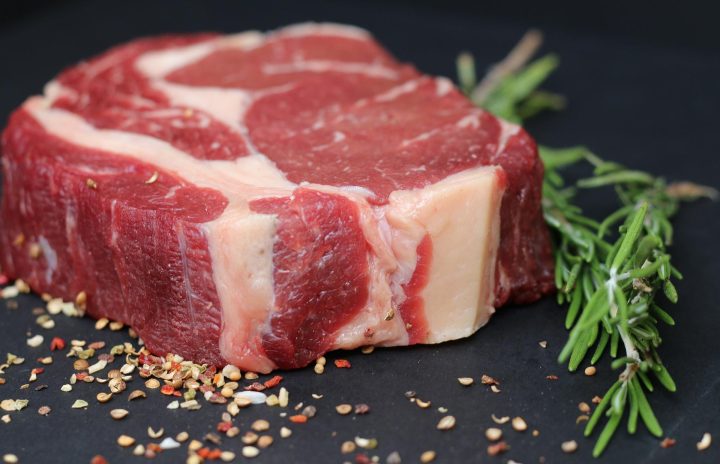WELLNESS
Eating less red meat while getting all the nutrients you need

For South Africans, meat is a firm favourite: whether it is braaied, in a potjie, served alongside Umngqusho or in a bobotie, meat can be found in the diets of 84% of South Africans according to a recent report.
The Knorr 2020 Plate of the Nation report found that the average South African meat eater consumes about 58kg of meat a year compared with 40kg in 1994. Red meat, which includes beef, veal, pork and lamb, is a firm favourite among South Africans, alongside poultry, the report found. But it’s not all about the taste of that flame-grilled burger or the smell of a simmering stew.
In fact, red meat is also commonly known for its nutritional value, with a high value of protein and important micronutrients such as iron, zinc and vitamin B12.
The British Nutrition Foundation found that red meat contains about 20g of protein, about 2 milligrams each of iron and zinc per 100 grams of meat, while vitamin B12 measures in at about two micrograms on average per 100g – “all of which are essential for good health throughout life”, according to its research paper, Red meat in the diet: an update.
Nutrients in red meat
Eating protein is essential for growth, maintenance and repair of the body; it is also a source of energy. The macronutrient can be found in muscle, bone, skin, hair and almost every other body part or tissue, the Harvard School of Public Health explains. Not only that, but it helps the body carry out essential chemical reactions such creating new cells, as well as carrying oxygen in the blood.
Iron also helps form blood cells for oxygen distribution and plays an important role in the immune system; zinc aids in growth and tissue repair, is necessary for normal reproductive development and builds a healthy immune system; it also helps to heal wounds. Meanwhile, vitamin B12 helps form blood cells along with DNA and develops the brain and nerves.
“These are all essential nutrients that play vital roles in maintaining human body functions,” Jessica Kotlowitz, a registered dietitian at The Green Dietitian, told Maverick Life.
It’s not all great though
However, alongside the benefits are some worrying health concerns that come with eating red meat.
The British Nutrition Foundation found that red meat especially has a high amount of saturated fats, which can increase the risk for heart disease, stroke, diabetes, high cholesterol and inflammation.
In 2015, the International Agency for Research on Cancer listed red meat as a Group 2A carcinogen, which means it is likely to cause cancer in humans. Although research is still being done, the evidence is mounting. Kotlowitz notes that “specifically, red meat has been linked to increased risk of colon and rectal cancer and possibly pancreatic and prostate cancer”, adding that decreasing the amount of red meat in the diet, or eliminating it all together, can be beneficial for your health, lowering the risk of developing these diseases or conditions.
Not only is it good for the human body, but eating less meat can improve the health of the planet, too. “Besides the obvious health benefits of cutting down meat intake, there are numerous environmental and animal welfare benefits. Most of us are extremely concerned about the imminent climate crisis, and the most recent UN IPCC Climate Change Report recommends switching to a more plant-based diet as a means to mitigate climate change. A shift towards a more plant-based diet can reduce carbon emissions by eight billion tonnes per year,” says Kotlowitz.
Looking for alternatives
If one decides to stop or reduce one’s consumption of red meat, what other options are there? As it turns out, lowering your red meat intake or even eliminating it from your diet overall does not mean you have to sacrifice getting those key nutrients, since protein, iron, zinc and vitamin B12 can all be found in plant foods.
“Vegetables, grains, nuts, seeds, beans, soy products and more all contain protein, and are particularly good sources of protein for those who don’t eat meat,” says Kotlowitz.
“Iron is also found in many plant foods including grains, nuts, seeds, beans, soy, dark-green leafy vegetables, dark chocolate and more,” she says, while zinc can be found in whole grains, nuts and seeds.
According to the Mayo Clinic, a vitamin B12 deficiency can lead to anaemia, fatigue, muscle weakness, intestinal problems, nerve damage and mood disturbances, and is most common in people who do not eat meat.
However, vitamin B12 may be a bit more difficult to get. Without eating red meat, the vitamin can be found in eggs, dairy products, fish and seafood, explains Kotlowitz. “Strict vegetarians and vegans can get vitamin B12 from fortified plant foods (such as certain breakfast cereals or plant milks) or from supplements.”
To sum up, here is how you can get those important nutrients:
- Protein: Grains (quinoa), nuts (peanuts, almonds), seeds (pumpkin seeds), beans, soy, legumes (lentils), eggs, Greek yogurt;
- Zinc: Grains (quinoa, oats, spelt), legumes (chickpeas, lentils), nuts (peanuts, cashews, almonds), seeds (hemp, squash, pumpkin, sesame) and potatoes;
- Iron: Legumes (lentils, peas, tofu), fruits (figs, dates, raisins), vegetables (broccoli, string beans, spinach), whole grains (bran, wheat, oats, rye), nuts (macadamia nuts, cashews, almonds), seeds (flax seeds, pumpkin seeds, sesame seeds) and dark chocolate;
- Vitamin B12: Eggs, dairy products, fish and seafood, fortified breakfast cereals and plant milks or supplements.
DM/ML


















 Become an Insider
Become an Insider
Comments - Please login in order to comment.